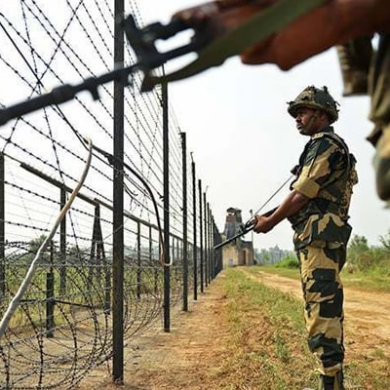A meeting of the G-20 on Tourism has begun in Indian Illegally Occupied Jammu and Kashmir (IIoJK) on Monday amidst opposition from China and Pakistan.
Both China and Pakistan have not only opposed the event which held under tight security, but also condemned the move due to its location.
By holding moot in the valley, India wants to showcase return of “normalcy and peace” in the region following the revocation of its special status in 2019, which led to direct control by New Delhi and an extended lockdown.
Although Kashmiri fighters have been largely subdued, with a decline in the annual death toll, critics argue that civil liberties have been significantly curtailed, dissent criminalized, and media freedoms curbed.
According to sources, security measures have been intensified ahead of the G20 meeting, with soldiers and armored vehicles deployed at various locations in Srinagar. Notably, several checkpoints have been dismantled overnight, and some paramilitary police have concealed themselves behind G20 advertising panels to minimize their visibility.
However, a new rebel group called the People’s Anti-Fascist Front, which emerged after 2019, issued a statement denouncing the event and threatening to deploy suicide bombers.
The three-day gathering is taking place in a well-guarded venue on the shores of Dal Lake in Srinagar, with two Indian government ministers in attendance. Some Western nations are only sending locally-based diplomatic staff, while G20 member China, along with Turkiye and Saudi Arabia, have refused to participate.
Critics have raised questions about the choice of location, questioning whether tourism promotion can be effectively achieved within closed conference halls adjacent to a scenic lake, patrolled by marine commandos and surveillance drones.
Foreign journalists require special permission to visit occupied Kashmir, which is usually difficult to obtain. However, permits have been granted for coverage of the G20 meeting, limited to Srinagar, and come with restrictions on propagating “anti-India narratives” or visiting “terrorist-infested places” without prior permission.
India currently holds the G20 presidency for 2023 and has planned over 100 meetings across the country. Additionally, India is engaged in a military standoff with China along their mostly undemarcated border in the Ladakh region, further adding to tensions between the two countries.
China considers Kashmir a “disputed territory” and opposes holding any form of G20 meeting in such regions. The Chinese Foreign Ministry spokesperson stated that China would not attend meetings in disputed territories.
Last week, the UN Special Rapporteur on Minority Issues criticized India, alleging that it was seeking international approval through the G20 meeting for a situation that should be condemned. India rejected these comments.
Increased security measures have led to discontent among residents, with hundreds detained in police stations and warnings issued by officials to thousands, including shopkeepers, against any signs of protest or trouble.



